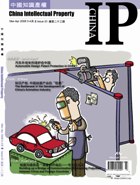
In China's IP practice, rights owners typically send cease and desist letters to the infringing party with the expectation of positively solving their disputes, e.g., through licensing. However, this practiced may be abused when excessive warning letters are semt to competitors, or even their clients, as to disrupting their normal course of business. To curb this abuse, the Supreme Court issued a certified opinion in July 2002 in response to request of the High Court of Jiangsu which stated that the party receiving the warning letter may seeking declaratory judgment for non-infringement of IP rights. Later, in another opinion of December, 2003 in response to a Shandong High Court's certification, the Supreme Court further prescribed proper venue for such declaratory judgment. In the underlying case, Eli Lilly and Company (Eli Lilly), believed that Waston Pharmaceuticals (Waston) had infringed its patent and sent a warning letter. Watson brought a lawsuit in Nanjing, seeking a declaratory judgment for non-infringement on Eli Lilly's patent. Thereafter, Eli Lilly filed an infringement action in the Qingdao. The Supreme Court indicated that the two cases involved the same patent and both were directed towards Wastons' manufacturing, selling, and offering to sell of "Waston Olanzapine." The Nanjing case was filed prior to the Qingdao case, and therefore the Qingdao case should be moved to Nanjing for combined investigation and hearing. Yet, when the light signaled green for declaratory judgment, an unexpected result followed: when the property owner issues a good-faith warning letter, the recipient would immediately seek such a declaratory judgment in a court to its own convenience, causing the property owner to defend in an awkward location, which would greatly interfere with the property owner's lawful rights.
However, another case from Zhejiang offered some hope: taobao.com received a letter on November 26, 2006 from Tencent Inc. (qq.com), claiming that its subscribers were selling QQ numbers and Q currency on taobao.com, which constituted infringement of Tencent's copyright and that ifTaobao did not prohibit such activities, it would be sued a joint infringer. Taobao saw it differently and filed a lawsuit in Hangzhou on December 5, seeking a declaratory judgment for non-infringement. The Hangzhou court examined the case and indicated that declaratory judgment is a judicial solution to curb intellectual property right abuse, and to prevent frivolous lawsuits by other parties concerned; a request seeking such a judgment should rest upon whether a property owner has, within a reasonable time period after the petitioner has received notice, initiated a dispute resolution proceeding. The court found that defendant in this case has filed a copyright infringement suit in Shenzhen on Juanuary 5, 2007, thereby initiating a dispute resolution proceeding within reasonable time. Therefore uncertainties as to whether the plaintiff's acts of facilitating sales of QQ numbers on its websites will definitely resolved in another forum. Therefore, there is no basis for seeking a declaratory judgment. Thus, the court dismissed the cause on January 25, 2007. Plaintiff appealed, and then withdrew the appeal to the High Court of Zhejiang.
In China, the suit for seeking declaratory judgment is a new type of IP litigation to prevent IP owners from interfering with legitimate business by sending warning letters rather than through infringement litigation. If declaratory judgment is sought in one court while infringement is claimed in another, which court should take jurisdiction over the matter? This is a serious problem for IP owners, and a controversial one. An IP owner should be well-advised to proceed cautiously to approach a potential infringer, by, e.g., making an informal phone call, etc. If a warning letter is indeed necessary, it should be so worded as to avoid such words as "infringement" or "lawsuit," etc. If, however, litigation has been contemplated, timely action should be taken after sending the warning letter. In case a potential infringer has taken action first, the IP owner may follow the Hangzhou case by obtaining a transfer of the case to a venue more favorable to itself.
(Translated by Hu Xiaoying)
|
Copyright © 2003-2018 China Intellectual Property Magazine,All rights Reserved . www.chinaipmagazine.com 京ICP备09051062号 |
|
|



